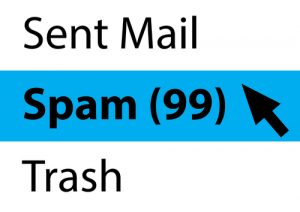 Canadian artists, the CASL anti-spam legislation will take effect on July 1, 2014 (TOMORROW!). Are you ready for it?
Canadian artists, the CASL anti-spam legislation will take effect on July 1, 2014 (TOMORROW!). Are you ready for it?
If you are a Canadian musician and you use email to market your music, you will definitely want to take heed of forthcoming changes. The penalties for non-compliance are hefty to say the least, so it would be wise to avoid unnecessary legal issues.
Let’s explore this matter in more detail and understand what actions we need to take to ensure congruence.
What is the CASL anti-spam legislation?
According to the government of Canada, spam makes up 75 to 90 percent of all email traffic! As you can imagine, this puts a heavy load on service providers that have to invest increasingly more resources into managing the problem.
However, spam doesn’t just slow networks down. It is also:
* The primary mode of distribution for viruses, malware, spyware, botnets, and so on.
* The primary vehicle for identity theft, online fraud, phishing, as well as criminal and predatory behavior.
From what I can gather, the anti-spam legislation will be a positive thing. At the very least, I can’t see anyone complaining about seeing less spam in their inboxes.
However, henceforth, us musicians will have to be a little more careful with how we market our music through email. Read on.
How will it affect musicians?
The government of Canada notes that legitimate businesses using email to market their services or products should not be affected negatively by the legislation.
While I cannot verify this fact, I assume this goes for individuals, entrepreneurs and musicians as well.
They also go on to say that your email marketing must be based on a consumer opt-in approach. This means that you cannot send emails to anyone who has not given you their prior consent, or anyone that you do not have a pre-existing business relationship with.
In other words, you need to make sure that your list is not made up of people that haven’t chosen to be on it in the first place. Your list needs to consist of people that have opted in of their own volition (i.e. through signup forms), and you must also provide unsubscribe options.
In addition to consent, transparency and clear communication have been cited by experts as being keys to mitigating spam.
What to do about it
Here are several tips on how to ensure that your email communication is in keeping with the new standards:
* Avoid spammy subject lines (i.e. those containing ALL CAPS and excessive exclamation points!!!).
* Use a conversational tone in your emails, as if you were talking to a friend (this also helps with landing your promotional emails in the ‘Primary’ tab instead of the ‘Promotions’ tab in Gmail).
* Ensure that your communication is open and transparent. No hidden agendas, and no shady deals.
* If you have any subscribers on your mailing list that haven’t opted in to receive communication from you, remove them from your list right away.
* Include clearly marked ‘subscribe’ and ‘unsubscribe’ links or options in your campaigns (most email marketing services have this feature built in).
* Bonus: Google ‘email marketing best practices’ and study relevant resources.
Incidentally, you can still buy email lists if they were obtained in an honest and legitimate way. However, communication still has to be within the context of consent.
Conclusion
The CASL anti-spam legislation is not expected to eliminate spam in Canada altogether. However, similar legislations have been passed in other countries, and even some of the most severe cases were reduced by leaps and bounds. We can definitely expect to see some changes in Canada.
Please note that I am not a legal advisor. I would encourage you to look further into this matter on your own time to ensure that you understand it to the fullest extent and that you are complying to the standards of the law.
Though I can’t say this with exact certainty, the legislation could potentially affect anyone with Canadians on their mailing list, so it’s worth looking into, even if you are not Canadian.
——
About The Author: David Andrew Wiebe has built an extensive career in songwriting, live performance, recording, session playing, production work, and music instruction. Today, he works as an online marketing strategist and consultant, helping companies create compelling content to develop relationships with their target market. His music marketing blog and podcast can be found at DAWCast.com.
[hana-code-insert name=’newsletter-smarter-musician’ /]
[Spam image from Shutterstock.]